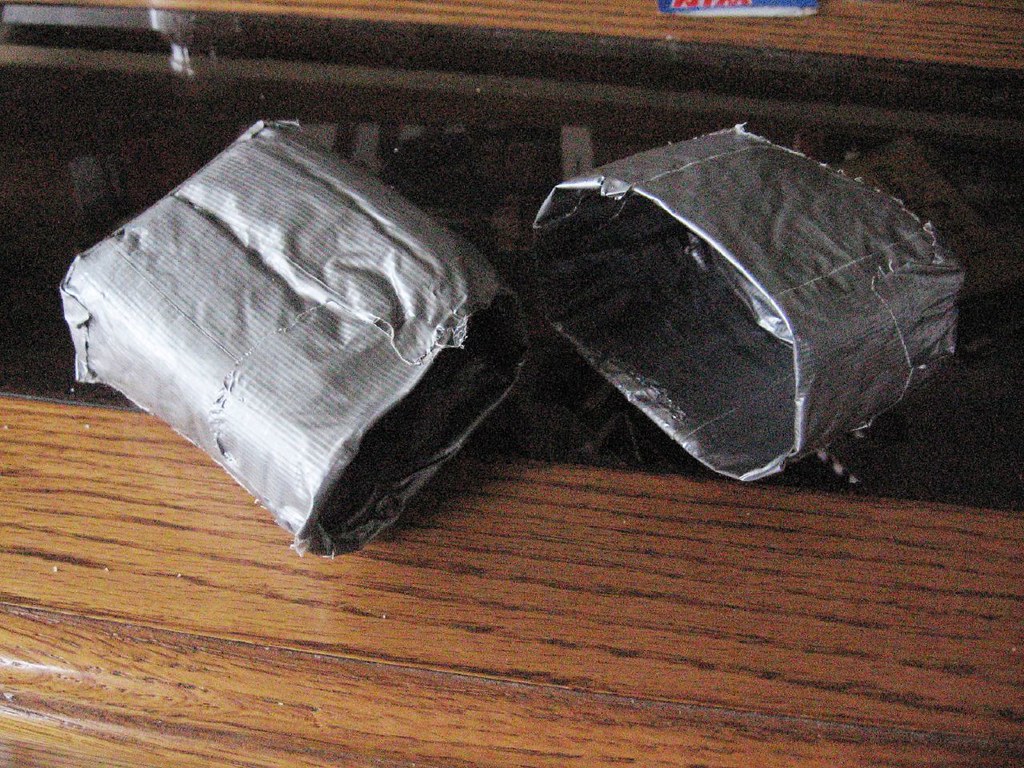We’re glad you’re here as we explore the wonderful world of microwave cooking. We will conduct an experiment today that is both intriguing and puzzling: Can Duct Tape Be Microwaved?
Duct tape shouldn’t be heated in the microwave. Although duct tape is renowned for its adaptability and adhesive qualities, it should not be microwaved or exposed to extreme heat. Duct tape can produce potentially dangerous results when microwaved. The microwave’s interior could be harmed and poisonous gases released if the tape’s adhesive backing melts.
Additionally, the metallic component in some varieties of duct tape poses a fire risk since it can spark or even catch fire. When using any product, including duct tape, it is crucial to adhere to the manufacturer’s recommendations and instructions.

What happens if you accidentally microwave duct tape?
Depending on a number of variables, such as the amount of time the tape was exposed to the microwave and the particular brand of duct tape, accidentally microwaving duct tape can have a variety of negative effects. Here are some potential results:
- Melting: The heat produced by the microwave can cause the duct tape’s adhesive backing to melt. This may produce a sticky mess and can harm the interior of the microwave as well as the object being microwaved along with the tape.
- Release of toxic fumes: Duct tape can emit dangerous chemicals into the microwave and the space around it when it is being heated. The adhesive of the tape can contain a variety of different compounds, some of which can vaporise when subjected to high temperatures. Your health could be at danger if you breathe in these fumes.
- Fire hazard: Some varieties of duct tape have metallic or conductive elements, which can spark or even catch fire in the microwave. This is a serious fire risk, harming the microwave as well as the environment.
- Damaged microwave: Duct tape shouldn’t be microwaved because it could harm the appliance. The internal surfaces of the microwave might become stuck with the melted adhesive, which could have an impact on how well it works and make cleaning it more challenging.
In conclusion, accidentally microwaving duct tape can lead to an unpleasant and possibly dangerous situation. Always use caution, according to product recommendations, and stay away from microwaving anything that isn’t made for it.

Can microwaving duct tape affect its adhesive properties?
Duct tape’s adhesive qualities can change if it is microwaved. Under normal circumstances, duct tape is made to have strong adhesive qualities, however extreme heat in a microwave can change the composition and effectiveness of the tape. The tape’s adhesive backing might melt or soften, which would render it less sticky. This could reduce the tape’s ability to stick to surfaces or make it sticky and challenging to handle.
Additionally, heating could weaken the adhesive’s ability to adhere, decreasing its overall effectiveness. It is significant to note that it is not advised to microwave duct tape because doing so might result in safety risks and damage to both the tape and the microwave.
At what point does duct tape melt?
Duct tape’s precise melting point can change based on the manufacturer, formulation, and materials used to make it. The common components of duct tape include an adhesive layer, a fabric or plastic backing, and other materials. Under normal circumstances, the glue is intended to be stable and sticky, however it can change if exposed to high temperatures.
Although duct tape doesn’t have a set melting point, it typically begins to soften and melt at temperatures exceeding 200°F (93°C). It’s crucial to remember that this can change based on the particular brand and make-up of the tape. While some duct tapes may withstand heat better than others, some may melt or deform at lower temperatures.

How does microwaving affect other types of tape, such as electrical tape or masking tape?
Depending on its makeup and intended usage, different types of tape, including electrical tape or masking tape, can likewise be microwaved with varying results. Here are some possible results:
- Electrical tape: Electrical tape is made specifically to insulate electrical connections and wires. Duct tape and electrical tape can both be microwaved with comparable results. The adhesive’s capacity to provide adequate insulation and adhesion may be jeopardised by melting. Additionally, if the tape has metallic or conductive components, it may emit poisonous vapours or pose a fire risk.
- Masking tape: In painting and other DIY projects, masking tape is frequently utilised. Masking tape can have the same results as other tapes when microwaved. The glue may melt or soften, becoming less sticky and possibly more challenging to remove from surfaces. When painting, when crisp edges and clean lines are sought, microwave cooking may also result in the tape losing its ability to cling properly.
It is significant to note that it is typically not advised to microwave any kind of tape, including electrical tape or masking tape. The adhesive qualities of the tape can be adversely affected in unanticipated ways by the heat produced in a microwave, and this heat can also endanger the microwave and the environment. It is always wise to abide by the recommendations and instructions provided by the tape’s maker and to look into alternate approaches to heating or working with materials.

Comments are closed